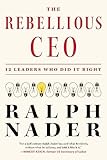For forty years people have been bombarded with claims that economic well being depends on private capital not on governments. Public utilities and services have been privatized. Regulations on corporations have been weakened. Taxes paid by corporations and the top income brackets have been slashed. Capital has been freed to move jobs from higher wage to lower wage countries.
Capitalist minorities — major shareholders and top corporate executives, two percent and less of populations — have increased their share of total income from ten percent to twenty percent. Capitalists have increased funds for private investment, but roads, bridges, rail lines, sewage and water systems have been allowed to deteriorate. Capitalists also have more money to finance election campaigns, to lobby and manipulate political agendas. Public spending on schools, hospitals, medical care and other social services has fallen behind needs. Chronic unemployment has risen. More people must get by on part-time work. Unemployment levels for young people are 25 percent, 50 percent and higher.
For immense majorities who depend on income from labor and social services, the problem is not too much government; it is too much money and power in the hands of corporations and the super-rich.
Governments should be criticized for disregarding the well being of majorities. Corruption, secrecy and duplicity should be condemned. But what in government is corruption in corporations is proprietary right. Corporations legally direct resources and social labor behind closed doors for the profits of shareholders. To make it seem that this is a matter of private rights, capitalist law deems corporations to be individuals. Corporations are actually the system’s dominant institutions. The largest transnational corporations have more revenues than most governments.
Corporations are not the competitive individuals of free market theory. They dominate markets. They patent products, technologies, and processes. They buy up the most profitable sources of supply, control marketing networks, and spend millions on advertising to tie consumers to existing brands. Whenever possible, they introduce technologies that reduce employment. They outsource wage and salary work. The fewer people employed, the less paid for labor, the more profits for shareholders, the more money for executive bonuses.
As capital’s share of total income rises, the share going to labor and the needy falls. As most markets decline, capitalists turn to speculation, betting on price changes in real estate, futures or derivatives. Casino capitalism adds nothing to real means of livelihood; winners merely gain at the expense of losers. Financial bubbles are followed by crashes. As more businesses fail, capitalists hold on to what they can by demanding that debtors be punished for the sins of creditors. Austerity leads to further declines in working-class income and markets.
Capitalism: the enemy of the people
Governments should be opposed for supporting policies that favor capitalist minorities and acting as the agencies of militarism, wars and repression. Minority privilege rests on the force of arms. Some capitalists promote war because they believe that military action can give them access to new resources and markets. Others profit from the purchase of drones, missiles, airplanes, fuel, and the provisioning of armed forces.
Edward Snowden exposed government secrets. He also exposed the central role private corporations have in surveillance and repression. His employer, Booz Allen Hamilton is a defense, security and surveillance contractor that has 26,000 employees and revenues of $5 billion, 99 percent from the U.S. government. Just as the privatization of prisons has led to growth in numbers jailed and to the use of penal labor for private profit, the privatization of surveillance can be expected to lead to more intrusive surveillance. The internet, once hailed for democratizing information, is already a tool of surveillance for private profit.
The most ominous consequence of capitalism is global warming. Because existing profits depend on cheap energy, capitalists refuse to believe that the burning of fossil fuels leads to climate change. Their remarkable wealth has made them so smugly self-assured that they have convinced themselves that if they deny the obvious global temperatures will not rise; ice caps will not melt; oceans will not become more acidic; extreme weather events will not become more frequent.
In the face of overwhelming evidence, corporate capitalism increases investments in tar sands and fracking, while cutting investments in solar, wind, tidal, and biothermal energy. They invest little in alternative nuclear power technologies that could eliminate nuclear waste and the threat of meltdowns. Corporate interests that concede the threat of global warming, promote new profitable uses for industrial waste. They propose reducing heat from the sun by blasting reflective chemicals into the atmosphere, and absorbing more carbon by dumping iron filings into the ocean and plowing “biochar” — the ashes of incinerated garbage — into soils.
If governments are to act in the immediate and long-term interests of humankind, the power of capitalist minorities must be reduced; democratic rights must expand. Taxes paid by corporations and the super rich must be raised at least to 1950s levels. Privatizations should be reversed, public ownership expanded. Wherever practical, utilities and public services should be directed by local communities. Allowing those with the most shares to have the most votes must be replaced with one person one vote. People everywhere must have a right to a voice and equal vote in directing their communities’ economic activity. Workers in all occupations must have the right to democratically direct their social labor time.










